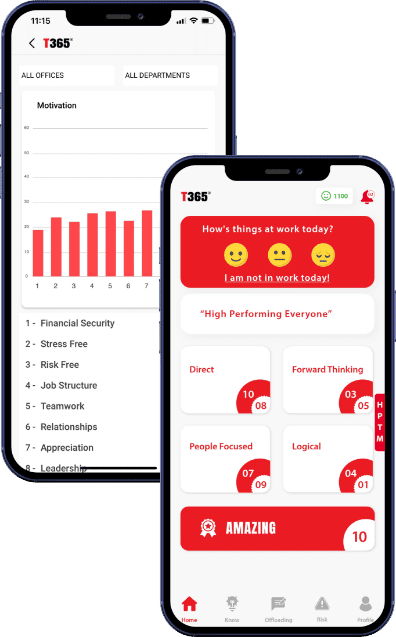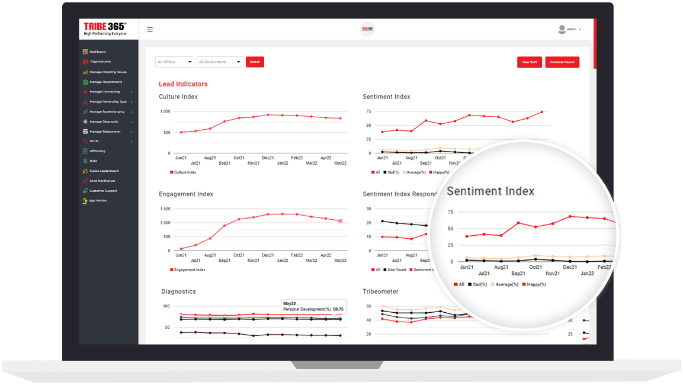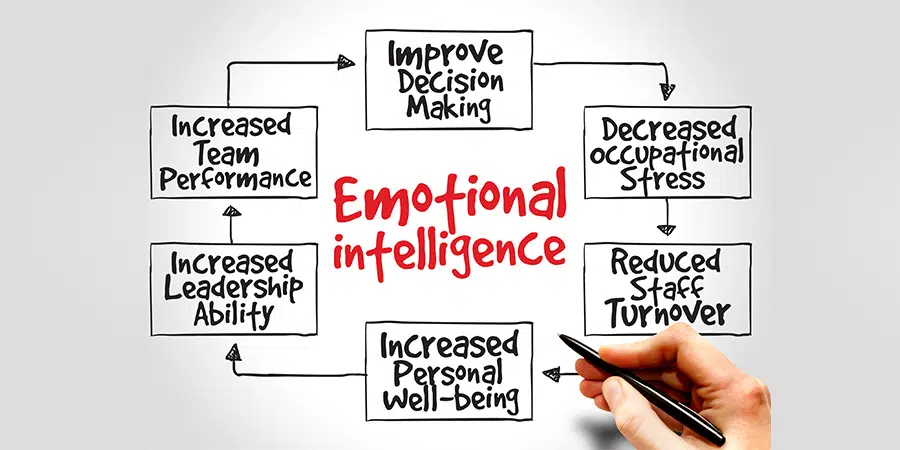Emotional Intelligence 2.0 — Team Intelligence
You’d be forgiven for thinking that Emotional Intelligence (often shortened to EQ) has had its day.
Like many management fads, it became very popular, had a few books written about it, and then sort of disappeared into relative obscurity because something else new and shiny came along.
EQ is often seen as an individual thing. It’s about listening to your own body, understanding when you are overstretched, controlling your outbursts and behaving professionally, and tapping into your intuition. And to understand how others feel, and be their best friend or (wicked cartoon sorcerer laugh) exploit their weaknesses.

The Individual and the Team
EQ applies as much to the team as it does to the individual.
Myers-Briggs told us that people have a performance personality. Belbin told us that we have a performance personality in context. But social psychology tells us that the ‘mob’ can take on a personality which is different from the sum of the people within the mob. This can be for evil – a mob can kill even though no individual within it would agree with murder — or for good.
Understanding how the ‘mob’ will behave is complicated and barely understood. But if you drive a car, very few among us know in detail how the spark advance works on a petrol car, or the necessary compression ratios in diesel, or how a brushless electric motor gets its torque. Or – if you’re reading this in 2050 – how the neutron moderator reduces fuel use in your nuclear power plant. You don’t need to know the details: you just need to be able to use it.
Why Team EQ?
At Tribe365, we’re interested in organisations — for-profit corporations, government and government agencies, and charities.
We’re interested in how teams perform; how they work to deliver the mission, vision and purpose of the organisation — or don’t.
We’re interested in finding that difference which makes the difference, identifying the dynamics that make your:
Teams perform well
Teams work well together to make departments that perform well
Departments that work together to make the organisation perform well
And also the dynamics that poison a team, or disrupt the flow of good work across an organisation.
We’re interested in intervention for high performance. We’re interested in pinpointing issues within hours or days of their emergence — a long time before a team leader or manager might realise that something isn’t right, or before anyone has realised that something outstandingly good is just starting.
We help you pick up on that difference, and plan subtle nudges which either address a problem, or encourage the good result to spread.
We’re interested in the individual. But, above all, we’re interested in the combination of people that make up the team, the department, the business unit, the organisation.
A force for good
There are very few situations where a star can carry a whole team. Oscar and Bafta winners come with a list of the ‘people who made it possible’.
Football stars perform outstandingly in one team and fail with a different group of people around them.
Brilliant scientists rely on a huge invisible army.
Business leaders would get nowhere without trusted lieutenants, and thousands of enthusiastic team members.
Naive leaders may believe that they lead their teams, but the best leaders recognise the adage ‘appoint the right people and get out of the way’.
So, how do you find the right people? I’m sure anyone with a couple of years in the workplace has met people who are nice as anything in social settings, but surly when you catch them at their desk. Or people whose social lives are chaotic and wild, but who organise events with the precision of a Sergeant Major.
There’s no one behaviour that is perfect for all workplaces (creativity is needed in some environments, compliance in others). Besides, a lot of us don’t have the luxury of choosing — the labour market is pretty tight now, so we take what we’re given.
So, it may not be about finding the right people, but rather about creating the right environment and the right team personality, so that people perform well at work and feel good about it. This is Team EQ: Team Emotional Intelligence.
How To Get To Grips With Team EQ
Understanding Team EQ is about creating the right “personality” for the work you need to deliver, in the context where you need to deliver it (i.e. with the interfaces you have, both to receive raw material, and to deliver finished product).
Tribe365’s simple app helps you to track the personality – the changing emotions of the teams, business units and whole organisation – in a way that would be impossible to understand if you were trying to track the specifics of each individual.
The app presents the information in such a way that you can correlate which team emotions go with high performance in your context, and which team emotions undermine performance. You can cross-reference the changes with circumstances like a company announcement or a change in the marketplace (for labour or for your products). It’s like a finger on the pulse.
If Teams Can Behave Differently, What Makes The Difference?
Of course, an app is a dumb tool. And, clever as Tribe365’s app is, if you want to make a difference, you need to make a decision to make an intervention. With the information you can see in our reports, you can make these decisions and interventions much earlier.
That means much less disruption — perhaps a ‘nudge’ that nobody consciously notices but which reinforces excellence or heads off a disruption. To get an idea of what difference it could make in cash terms, work out the run-rate of your business, and how much better you could be performing.
For example, imagine your business has operating costs of £24million per year (say 50% workforce costs, and you are open approximately 20 days per month). That’s a £100,000 run-rate per day.
Many businesses waste more than 15% of staff time on activities that should be automated, or on waiting for the computer systems to be restored to use the automated processes. That’s £15,000 per day.
It wouldn’t be too far-fetched to assume the same losses again from staff who aren’t in a cooperative mood, who push a job to the bottom of the pile because of an argument, with a huge knock-on in productivity lost (but they haven’t done anything tangibly ‘wrong’).
Imagine that you get a complaint from a customer. How long would it take before you heard about it? How long before you decided it was real? Two days to decide, another three before you decide what to do about it. The clock is ticking — £75,000 lost productivity. You identify the department (although you still can’t identify the exact problem) and shout at the team leaders. The lid is put on the pressure cooker, and you think you have solved it. How much did it cost? How much will it cost when the pressure cooker blows?
With the Tribe365 app, you spot a change in the number of compliments that a team is giving each other on day one. Productivity is probably down, but it’s so little at this stage that it couldn’t be measured, and the customer hasn’t noticed yet. However, you decide to act anyway because the picture is clear. Based on the information you have you can identify an individual team and you go to the team and ask what’s wrong. It’s gentler, more human.
Someone admits to taking actions that they now feel ashamed about. Your staff feel listened to, they feel valued. The problem hasn’t even started yet, but you’ve solved it.
What makes a difference? Knowing early and acting early. A slight deviation from high performance, corrected with a slight adjustment.
To take the driving analogy further, you haven’t hit any motorway debris or swerved in front of a heavily laden wagon, thereby risking an accident: you’ve adjusted to keep yourself in the middle of your lane (or detected that you are coming up behind something slow and put your indicator on with plenty of time to pull into the fast lane). You haven’t slowed down, and nobody is cursing you.
You’ve not only saved £75,000 in lost productivity that’s measurable now, but you’ve saved an explosion from the pressure cooker in a couple of months, which could be far more disruptive even if you could claim it was someone else’s fault.
What the Tribe365 App Isn’t
What we do (the information, the advice, the support) is not a tool for highly political environments, where you want chaos to thrive so that you can advance your agenda or where you want occasional disasters that enable you to put your rivals in the firing line.
It’s a tool for high productivity and harmony: for environments where everyone can win because everyone has a share in success.

Interested in finding out more?
Book a meeting in with the Tribe team
today on +44 (0) 1325734847 or at
team@tribe365.co


















